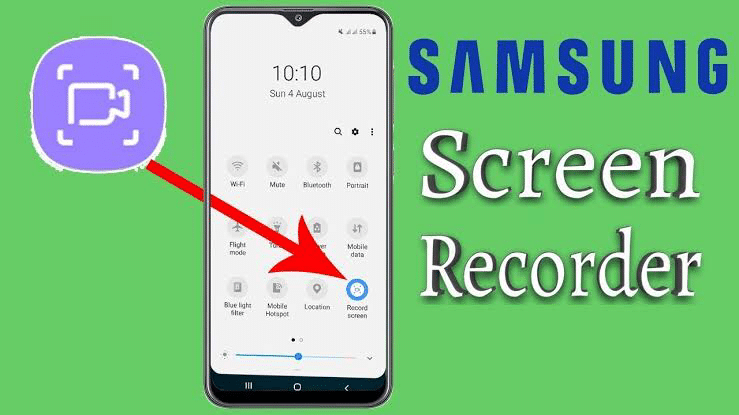How Long Do Rechargeable Hearing Aids Last?
Rechargeable hearing aids have gained significant popularity in recent years due to their convenience and cost-effectiveness.
Unlike traditional hearing aids that rely on disposable batteries,
rechargeable hearing aids feature built-in batteries that can be easily recharged.
If you’re considering switching to rechargeable hearing aids or already own a pair, you may be wondering about the lifespan of their batteries.
In this article, we will explore the different types of rechargeable
hearing aids, their battery life, and provide tips on maximizing the longevity of your rechargeable hearing aid batteries.
Understanding Rechargeable Hearing Aids
Types of Rechargeable Batteries
Rechargeable hearing aids generally utilize two types of batteries: Silver-Zinc and Lithium-Ion.
Silver-Zinc batteries: These batteries are inserted into the hearing aids through a battery door.
They typically take 3-4 hours to fully charge and provide around 24 hours of usage per charge. The average lifespan of Silver-Zinc batteries is approximately one year.
Lithium-Ion batteries: These batteries are integrated into the hearing aids without the need for a separate battery door.
They offer similar charging times and usage durations as Silver-Zinc batteries.
However, their lifespan matches that of the hearing aid itself, which is typically 4-5 years.
How Long Do Rechargeable Hearing Aids Last?
Battery Life of Silver-Zinc Rechargeable Hearing Aids
Silver-Zinc rechargeable hearing aids typically offer a battery life of 24 hours per charge.
However, it’s important to note that factors such as streaming audio and adjusting volume levels can affect battery consumption.
On average, the batteries themselves last about a year before needing replacement.
Battery Life of Lithium-Ion Rechargeable Hearing Aids
Lithium-Ion rechargeable hearing aids also provide a battery life of around 24 hours per charge.
The difference lies in their overall lifespan, which matches the lifespan of the hearing aid itself.
After 4-5 years, you have the option to replace the batteries or consider upgrading to a newer hearing aid model.
Recommended
- How Long Does WHOOP Battery Last?
- How Long Does Polar H10 Battery Last?
- How Long Does Ankle Monitor Last On Low Battery?
Maximizing the Lifespan of Rechargeable Hearing Aid Batteries
To ensure you get the most out of your rechargeable hearing aid batteries, it’s essential to follow proper charging and storage practices.
Proper Charging Practices
When it comes to charging your rechargeable hearing aids, keep the following tips in mind:
It’s generally safe to leave your hearing aids in the charging station even if they are not fully drained. Continuous charging does not harm the battery or reduce its lifespan.
Avoid storing your hearing aids in an unplugged charging station, as this can lead to battery drainage. Keep the charging station plugged in when not in use.
Storage Tips for Rechargeable Hearing Aids
Proper storage can also contribute to the longevity of your rechargeable hearing aid batteries:
When storing your hearing aids for an extended period, ensure they are turned off and placed in a safe, dry location.
If you won’t be using your hearing aids for more than a few hours and cannot charge them, consider removing the batteries and storing them separately.
Make sure to store the batteries in a cool, dry place and avoid placing them near metal objects.
Benefits of Rechargeable Hearing Aids
Rechargeable hearing aids offer numerous benefits that enhance the overall user experience:
Convenience and Ease of Use
With rechargeable hearing aids, you can bid farewell to the inconvenience of carrying spare batteries or worrying about sudden battery depletion.
Simply charge your hearing aids overnight, and they’ll be ready to accompany you throughout the day.
Cost-Effectiveness
Although rechargeable hearing aids may have a higher upfront cost, they prove to be cost-effective in the long run.
By eliminating the need for regular battery replacements, you can save money over time.
Additionally, you contribute to a more sustainable environment by reducing battery waste.
Warranty and Repair Considerations
Before purchasing rechargeable hearing aids, it’s crucial to understand the warranty coverage and available repair options:
Understanding Warranty Coverage
Rechargeable hearing aids typically come with a warranty that covers manufacturing defects and repairs within a specified period.
It’s essential to review the warranty terms provided by the manufacturer or your hearing healthcare provider.
Ensure that the warranty covers both the hearing aids and the rechargeable batteries.
Maintenance and Repairs
Rechargeable hearing aids generally require less maintenance and repairs compared to non-rechargeable ones.
However, it’s still important to follow proper cleaning practices and take care of your hearing aids to maximize their lifespan.
If you encounter any issues, contact your hearing healthcare provider for assistance.
Conclusion
Rechargeable hearing aids offer a convenient and cost-effective solution for individuals with hearing loss.
The battery life of rechargeable hearing aids varies depending on the type of battery used, with Silver-Zinc
batteries lasting around a year and Lithium-Ion batteries matching the overall lifespan of the hearing aids themselves.
By following proper charging and storage practices, you can maximize the lifespan of your rechargeable hearing aid batteries.
Additionally, rechargeable hearing aids provide various benefits such as convenience, ease of use, and long-term cost savings.
Remember to consider warranty coverage and maintenance options when purchasing rechargeable hearing aids, and enjoy the freedom and enhanced hearing experience they provide.
FAQs About Rechargeable Hearing Aids Batteries.
Q1: Can I use disposable batteries in rechargeable hearing aids?
No, rechargeable hearing aids are designed specifically for use with rechargeable batteries. Attempting to use disposable batteries can damage the hearing aids and may void the warranty.
Q2: How long does it take to fully charge rechargeable hearing aids?
The charging time for rechargeable hearing aids varies depending on the model and type of battery. Generally, it takes 3-4 hours for a full charge.
Q3: Can I use a different charger for my rechargeable hearing aids?
It is recommended to use the charger provided by the hearing aid manufacturer. Using a different charger may not provide the appropriate voltage or current, potentially damaging the batteries.
Q4: Can I replace the rechargeable batteries in my hearing aids myself?
In most cases, the rechargeable batteries in hearing aids are not user-replaceable. It is best to consult your hearing healthcare provider or the manufacturer for battery replacement options.
Q5: Do rechargeable hearing aids require any special maintenance?
Rechargeable hearing aids require regular cleaning and care, just like any other hearing aid. Follow the manufacturer’s guidelines for cleaning and maintenance to ensure optimal performance and longevity.





